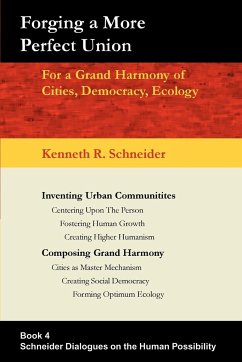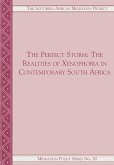Cities today are the weakest link of both democracy and modern affluence. Their explosive sprawl wastes land that promotes both urban social crises and environmental decay through mass auto movement on outrageously costly freeways--contradicting the inherent role of cities to minimize even the need to travel. The immense sprawl unnecessarily assures human isolation (with the consequent dependence upon television), undermines sustainable ecology, and abandons huge areas of the old inner city. Consequently cities are waste-generating environments that arbitrarily promote production and consumption for purposeless and endless economic growth that can never satisfy human "needs". As basic organizers of life in society, cities can become inspired environments of human development. But they must be built compactly to preserve large, accessible open spaces for recreation, parks, and natural areas. Then they can underwrite an unprecedented human efficiency comparable to productive efficiency. To build such cities, a major shift is required to control their structure and eliminate urban development as merely a promotional waste by real estate speculation. Urban development authorities are required to build cities through principles of land conservation, urban spaciousness, minimal need for transportation, human efficiency, and highly congenial human spaces.
Hinweis: Dieser Artikel kann nur an eine deutsche Lieferadresse ausgeliefert werden.
Hinweis: Dieser Artikel kann nur an eine deutsche Lieferadresse ausgeliefert werden.








